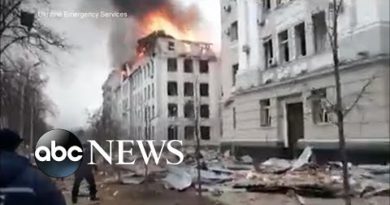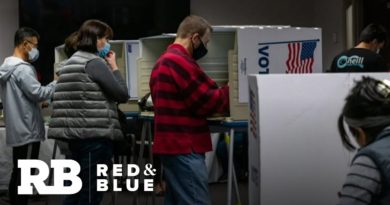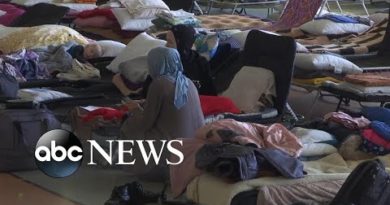Iran nuclear talks freeze amid terrorist label spat — even with deal on the table
VIENNA — Negotiations to restore the Iran nuclear offer have reached a comprehensive standstill.
Even with getting a about 27-page agreement just about completely ready to go, diplomats are even now hung up around a single closing sticking position concerning the U.S. and Iran: The status of a powerful branch of the Iranian military, the Islamic Revolutionary Guard Corps (IRGC).
The U.S. put the team on its “Foreign Terrorist Organization” list in 2019, aspect of President Donald Trump’s “maximum pressure” marketing campaign after pulling out of the nuclear offer, which limited Iran’s nuclear ambitions in trade for sanctions reduction.
Now the issue has been dragged into the remaining phases of extended-working talks to revive the nuclear deal under President Joe Biden. The subject is of these enormous political sensitivity in both Washington and Tehran that a compromise has proved not possible and now appears to be progressively unrealistic.
The sticking position revolves around the terrorist label technically falling exterior the purview of the nuclear settlement, formally regarded as the Joint Complete Strategy of Motion, or JCPOA. The U.S., which maintains numerous other sanctions on Iran, is loath to strike agreements past the initial deal’s contours, still Tehran insists the topics really should be interwoven.
“The U.S. posture has been that unless of course Iran agrees to acquire certain actions to assuage stability fears outside of the JCPOA, Washington will not lift the terror designation, which alone is further than the JCPOA,” a U.S. formal acquainted with the difficulty told POLITICO.
And that stance is not transforming, the official added, “especially provided ongoing threats by the IRGC versus [Americans].” The Biden administration is experiencing bipartisan political resistance at property to not strip the terrorist tag. Due to the fact of all these variables, the official explained, “the Biden administration is hugely unlikely at this point to fall the designation in the context of the JCPOA talks.”
The stalemate has built an Iran nuclear offer revival, seen as imminent only a handful of months again, a distant prospect. Talks also briefly ran aground a short while ago in excess of a demand from Russia — an first signatory on the agreement — that it receives sanctions protections for any potential small business with Iran.
Now, the terrorist label appears to be the tallest hurdle.
Washington initially presented to delist the IRGC in exchange for Iran committing to chorus from targeting People in the location and eschewing retaliation against former U.S. officers deemed dependable for choices like killing IRGC commander Qassem Soleimani in January 2020.
But Iran refused to make these kinds of reciprocal concessions.
Enrique Mora, the European Union official coordinating the oblique talks between the U.S. and Iran, has been transmitting proposals amongst the two sides about the previous seven weeks in vain and even engaged in shuttle diplomacy among Tehran and Washington final month in an energy to achieve a resolution.
Continue to, the talks have arrive to an efficient halt.
Though Iranian Overseas Minister Hossein Amirabdollahian and EU foreign coverage chief Josep Borrell have mentioned the risk of one more private assembly in a latest cellphone contact, no get-alongside one another has materialized.
The Iranian overseas minister has informed Borrell that the “U.S. administration requirements to have the courage to suitable the earlier completely wrong policies of the White House. There is no question in the will of Iranian government to achieve a good, solid resilient agreement.”
In the meantime, the tide in Washington has been turning in opposition to using the Iranian navy team off the terrorist checklist, narrowing the window for the U.S. to solve the challenge.
A developing variety of Republican senators, as well as some crucial senators from Biden’s Democratic Bash, are putting force on the White House to not budge.
“Let me be very clear. The IRGC is a terrorist business,” Democrat senator Joe Manchin mentioned in a current letter to U.S. Secretary of Point out Antony Blinken. “We ought to not be small-sighted in the use of sanctions relief to mitigate our present vitality worries,” he extra, referencing Western allies’ drive to eschew Russian electricity amid the war in Ukraine. Reviving the nuclear offer could simplicity Iranian energy flows to Western international locations.
Trump imposed the terrorist tag on the IRGC amid quite a few other terrorism and human rights sanctions his administration placed on Iranian institutions and folks not connected to the country’s nuclear program.
A lot of overseas policy analysts argued the pile of non-nuclear sanctions was aimed at scutting upcoming makes an attempt to return to the nuclear offer — a prediction that now appears prescient, with the odds escalating larger the talks could are unsuccessful. Just one probable solution may perhaps be an settlement to go over the delisting in a separate, adhere to-up negotiation after the nuclear deal is correctly revived.
Nonproliferation advocates are fretting about the negotiations forever falling apart.
“If prospective clients to restore the JCPOA collapse, the nuclear crisis will escalate and the threat of conflict significantly increases,” claimed Kelsey Davenport, director of nonproliferation plan at the Washington-based Arms Handle Association. “Restoring the nuclear offer is the only fantastic alternative for staving off a nuclear crisis.”
Analysts and govt officers have been warning that time is managing out to restore the Iran nuclear deal. In a recently published open letter, much more than 40 international specialists and previous federal government officers warned that Iran is now only close to just one or two weeks absent from amassing enough bomb-grade uranium for a nuclear weapon.
Iran has generally taken care of that its nuclear method is peaceful and that it has no intention of developing an atomic bomb.
But the International Atomic Electrical power Agency (IAEA), the United Nations nuclear watchdog, has endured from minimized oversight of Iran’s nuclear software for more than a 12 months now, with Iran withholding footage from IAEA cameras set up at its nuclear facilities.
“While talks keep on being stalled, Iran’s nuclear program continues to grow unchecked,” Davenport said. “Tehran is steadily transferring nearer to the level where a sprint to develop nuclear content for a bomb could go undetected by worldwide inspectors.”
The draft settlement, cast in EU-mediated negotiations in the Austrian capital around the earlier yr, incorporates all components needed for bringing the U.S. and Iran back into whole compliance with the first 2015 deal. It rolls again sanctions on Iran in return for stringent limitations on its nuclear method.
Highly technical aspects have all been agreed on in painstaking talks in between diplomats from Britain, France, Germany, Iran, Russia, China and the U.S.
“I can inform you that people today who invested by themselves heavily in this negotiation are annoyed because a quite excellent agreement that benefits all the parties, as well as the non-proliferation architecture, is getting taken hostage to bilateral issues that have almost nothing to do with the JCPOA or nuclear concerns,” one particular senior Western official, who took part in the talks, advised POLITICO.





